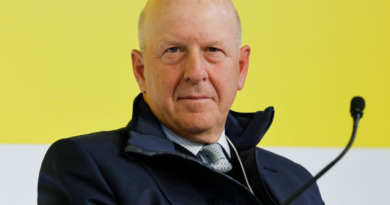Sensorita uses digital twins to help waste management companies streamline construction waste
The amount of waste produced by the construction industry adds up to more than a third of the overall waste produced each year in the European Union. And it’s no better in the U.S. Stateside, the construction industry produces more than double the waste that households do each year.
Sensorita wants to help the construction industry reduce its waste by fixing what Sensorita co-founder and CEO Ulrikke Lien considers to be the root of the issue: the lack of reliable data in the industry. Lien told TechCrunch that many waste management companies collect from so many construction sites that they often don’t know where their bins are, how many of them there are or when they will need to be emptied.
“Since the very beginning, what stood out then, and what is still true now, the data that they have access to in the industry is so limited,” Lien said. “If you compare it to any other process industry, there is no one that would accept the level of data, or insight or knowledge, and that’s the general problem.”
The Oslo-based startup puts its sensors into construction waste bins and uses radar and machine learning technology to create digital twins of each bin. Waste companies can then use Sensorita’s software to get updates from where their bins are and how full they are and use that data to better plan pickups.
“Today, they are walking around and monitoring fill levels with their eyes; that’s a big problem if you have to spend 45 minutes of your day checking fill levels,” Lien said. “It’s a very low-margin industry. Waste management companies can use that information to streamline and cut costs and time.”
Lien got the idea for the company back in 2020 when she was getting her engineering degree from the Norwegian University of Life Sciences. She originally wanted to build something for the municipality — household — waste sector but realized that there were already a number of startups trying to sell their tech to those players. Plus, household waste is fragmented and backed by public money, which means it would be really hard to gain traction.
So Sensorita pivoted toward construction waste, where it has focused since. Early on, the company approached Ragn-Sells, a large construction company, with the idea. The company gave them $10,000 and Sensorita started building, launching its first pilot in February 2022. It has since built out the relationship with Ragn-Sells, and works with three additional customers.
“We have been proving traction from the very beginning,” Lien said. “Whenever you talk to a new waste company, they are facing the same struggles with the level of information.”
The company is coming out of stealth with $3.25 million in venture funding. The round was led by construction-focused VC Brick and Mortar Ventures with participation from Telenor, a large telecomm player. The firm has raised a total of $6 million, with about a third coming from grants.
Lien met Brick and Mortar Ventures partner Guillaume Bazouin back in 2022 when they happened to sit next to each other at Finland’s signature Slush conference. At the time, Bazouin was working with Leonard, a startup accelerator run by Vinci, a Paris-based construction company. When Bazouin joined Brick and Mortar ventures almost a year later, he told TechCrunch, he knew he wanted the firm to back Sensorita.
“Waste management in construction, it’s a gigantic problem,” Bazouin said. “The reason why it is bubbling up to the surface is because in Europe you have strong regulations, and you have this regulatory pressure to start having effective tracking.”
Lien said Sensorita plans to use the funding to build out its team and continue investing in its technology. She added that they have really strong traction in Norway and are looking to expand out of the region. The company is developing their sensor technology to be able to determine what type of material is in a given garbage bin. They also hope to be able to create a virtual assistant for the waste management industry.
“It’s very difficult to improve anything when you don’t know what the situation is like,” Lien said. Sensorita looks to be the first step.


